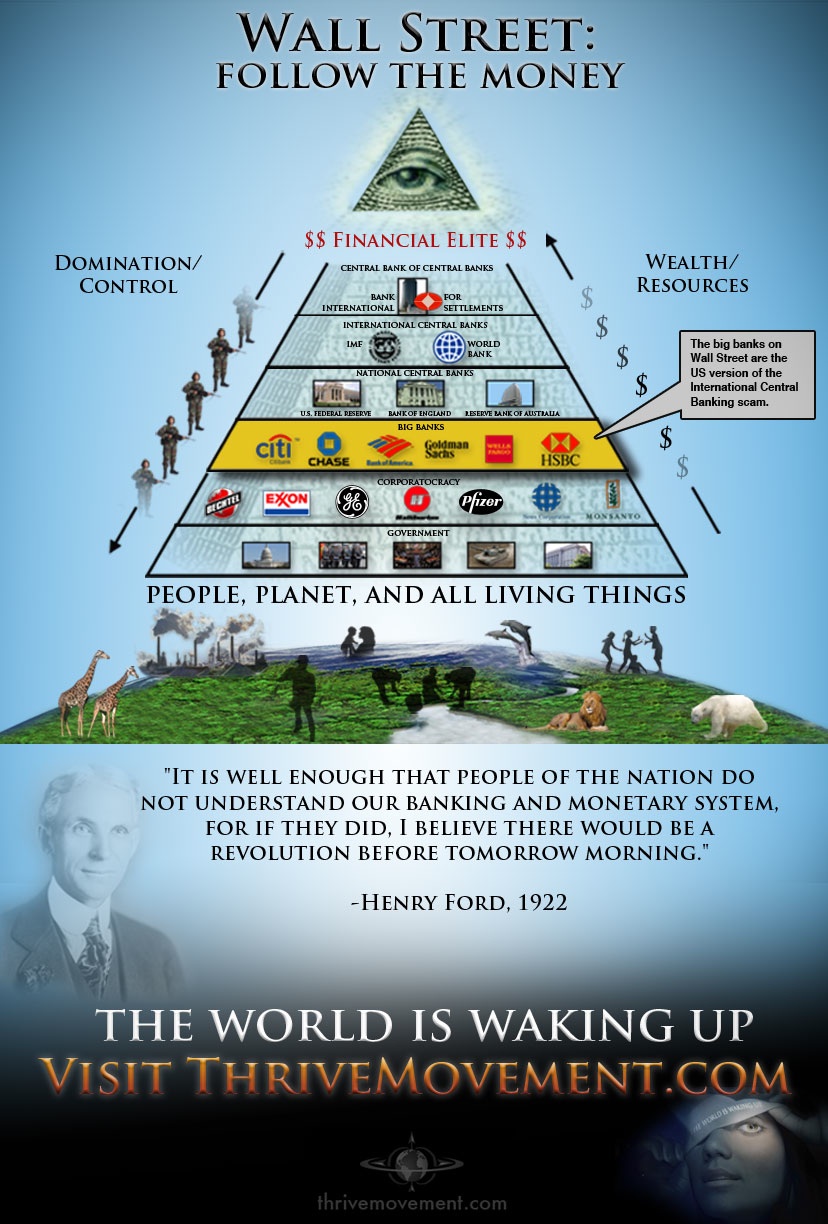
This is the second of a two-part article that was co-produced and co-published with the Transnational Institute, timed to coincide with the World Economic Forum starting this week in Davos, Switzerland. The first installment of the article appeared yesterday.
Monetary Orthodoxy and its Political Repercussions
Central bankers are notoriously conservative and orthodox in their ideological positions. In the world of economics, this puts them in the position of being the political guardians of the global neoliberal order. In terms of policies, this translates into being strong promoters of low inflation, often requiring them to raise interest rates; supporters of liberalization (or deregulation) of markets, particularly financial and debt markets; implementing austerity measures (cutting social spending), and undertaking various structural reforms (such as the deregulation of labour markets and privatization of state assets) designed to further transform their respective societies into modern market economies.
While central bankers themselves are confined to the strict mandates of their institutions, often focused around what’s called maintaining "price stability" (keeping inflation at a low and stable level, generally between 2-5% depending on the country), they are still able to greatly influence the broader set of economic policies and priorities, and through their control over monetary policy they have the capacity to inflate or shrink an economy, giving them immense leverage over other policy-makers.
One of the most important characteristics of modern central banks is their so-called “independence,” referring to the degree to which the central bank and its governor are accountable to political authorities. If a central bank is "independent," this means it has the power to act independently of elected (or otherwise established) political authorities so long as it is operating within its mandate and using the various policy options and instruments available to it (such as raising or lowering interest rates). Some of the most powerful central banks in the world, such as the U.S. Federal Reserve, the European Central Bank (ECB) and the Bank of England, are examples of independent central banks led by unelected technocrats who are unaccountable to elected officials and the democratic process.
Thus, in the world of central banking, the prevailing orthodoxy revolves around the twin concepts of operational independence and a mandate focusing on price stability. The combination of these factors gives central bankers immense political power, for their economic decisions have profound social and political consequences, capable of causing recessions or depressions, creating mass unemployment, collapsing governments, bailing out banks and financial institutions (and handing the bill to the public), and transforming the very structure of society itself.
This political power is most frequently used to the benefit of the national and international private financial community (banks, insurance companies, asset managers, etc.) as opposed to the wider public community or nation. A mandate of "price stability" (low inflation), for example, is beneficial to creditors because it increases the amounts they are owed and protects the value of their savings. Higher inflation, on the other hand, can reduce the value of their savings and make it easier for debtors to pay off debts. There are of course exceptions and nuances to this general scenario. For example, hyperinflation is bad for everyone, and low to moderate inflation may be good for debtors so long as their wages are adjusted to inflation (which allows them to be paid more in dollar amounts for the same amount of work, and thus, helps to pay off debts faster).
Raghuram Rajan acknowledged the political nature of central banking during a speech at the annual congregation of global central bankers in Jackson Hole, Wyoming, in late August of 2015. While the work and focus of central bankers is largely “technical,” explained Rajan, both history and “the current political environment” have an immense influence on monetary policy and its technical components. Rajan noted that central bankers think of and promote themselves as “apolitical,” but the “background influence of political economy” is always present, “sometimes without recognizing it.”
The problem for central bankers, he suggested, was their communication of political issues, because once central bankers do so, they become engaged in “the political dialogue,” which they are supposed to avoid, “because you’re a technocrat whose supposed view is apolitical.” An unelected technocrat at a central bank is capable of “making decisions that infringe on the prerogative of elected officials,” he said, but such “decisions may mean political trade-offs,” or deals to be made with politicians. When it comes to making policy, he said, “nothing can really be clean.”
This is something that Governor Rajan knows very well. In January of 2015, he made a private deal with the elected government of Prime Minister Narendra Modi in which he agreed to cut interest rates, giving a boost to economic growth in return for the government agreeing to implement a host of austerity measures and “structural reforms” designed to further develop India’s “power, land, minerals and infrastructure.” But by early February, Rajan indicated that “the war on inflation” was far from won in India, and refused to cut rates further.
This was viewed as “a message” by the central banker to the government to include austerity measures and other reforms if the government expected any further monetary support. The government acquiesced to the Governor’s demands, and the budget submitted by the Finance Minister included a “panopoly” of austerity measures and other reforms. Private bankers and investors expressed their delight at the new budget.
A couple days after the budget was announced, another important announcement was made for Rajan, as he was granted special new powers with the central bank being given an “inflation target” (putting "price stability" into the mandate). This effectively gave Rajan and the Reserve Bank of India (RBI) greater independence from political authorities. The day after he was granted these new powers, Rajan cut interest rates in line with his previous deal with the government in return for the budget items he demanded, and possibly in a quid-pro-quo for granting him new independent powers. During 2015, there continued to be tussles between the RBI and the government about the independence of the Bank, but it seems likely that Rajan will emerge victorious.
Governor Carstens of Mexico also had his own struggles throughout the year, dealing with the repercussions of potential higher interest rates in the United States. However despite the Mexican economy slowing down, but Governor Carstens refused to cut interest rates any further, not wanting to “let inflation and the peso go adrift.” The main guideline of the central bank, he said, “should be inflation expectations,” adding that he would even consider raising rates if need be, possibly even before the U.S. Federal Reserve raised its own rates. “We will act,” he said in an interview with the Wall Street Journal. Carstens endorsed the austerity package introduced by the Mexican Finance Minister Luid Videgaray, but warned that, “What’s important here is that the Finance Ministry sticks to its promises.”
In late July, Governor Carstens enjoyed a notable victory in the world of central bankers: inflation in Mexico hit its lowest level since 1970, and at 2.76%, it was below the 3% target set by the central bank. As the Wall Street Journal opined, this achievement “polishes Mexico’s credentials as the most economically orthodox country in Latin America, and one where inflation-control policies are sacrosanct.” Carstens referred to it as “an important milestone for Mexico.”
In September, Mexican Finance Minister Luis Videgaray announced that President Pena Nieto would nominate Carstens for a second six-year term at the head of the country’s central bank, which was “likely to give confidence to financial markets.” And despite the inevitable negative consequences of higher U.S. interest rates on emerging market economies, both Governors even came out in support of the Federal Reserve raising rates. Carstens said such a move would be reflective of a stronger U.S. economy which would be “very good news.” Rajan, on the other hand, said, “It’s preferable to have a move early on and an advertised, slow move up rather than the Fed be forced to tighten more significantly down the line.”
Emerging Markets – An Expanding Global Elite
Rajan and Carsten are also a reflection of one of the most important economic stories in the past several decades, which has been the rise of what we call the "emerging market" economies, countries like China, India, Brazil, Russia, South Africa, Mexico, Turkey and Indonesia, among others. In the 25 years prior to the global financial crisis, the Group of Seven (G-7) countries (United States, Germany, Japan, United Kingdom, France, Italy and Canada) accounted for roughly half of global GDP, but their share has declined relative to the growth of emerging markets. In 1990, emerging economies accounted for less than a third of global growth, but by 2013, they accounted for roughly half, in what The Economist called “the biggest economic transformation in modern history.”
Emerging markets have not risen in economic size and strength in opposition to the economic system defined and governed by the G-7 nations, but rather through their integration into that economic order and acceptance of the economic orthodoxy propagated by the developed economies. With their rise, they are demanding greater international political power to match their increased international economic weight.
Despite unity on economic policy, this shift has not been a smooth process or without resistance, given the reluctance of the United States and G-7 nations to give space for emerging nations to articulate alternatives particularly on issues of foreign policy where there is more divergence of views. In managing this process, the G-7 nations have granted special status to a small group of emerging economies and to the top financial diplomats that represent them in international circles. In particular, China, India, Brazil and Mexico are the most favoured emerging economies, the most integrated into the structures of global economic governance, and whose top diplomats (in particular, central bankers) are the most respected and represented in global financial circles.
The Emerging Consensus
These two governors of the global economy, perhaps the two most respected central bankers from emerging market economies, represent the changing faces of global economic governance, but also represent the fact that for emerging markets to get real power, they must first give up any alternative economic ideology or vision. Both Carstens and Rajan attended prestigious American universities, worked in high level positions at the IMF and in their respective finance ministries before ascending to the throne of monetary managers for Latin America’s second largest – and Asia’s third largest – economy.
Integration into the existing power structures of global economic governance requires first and foremost, ideological capitulation: to accept the market system as the ideal form of the global economic order. They may push for reforms and alterations, but the substance remains largely the same: the market remains supreme and sovereign. Carstens and Rajan may be global economic governors of a different variety than the world is accustomed to, but they are firmly entrenched within the existing apparatus and ideology of global economic governance. Keep your eyes on these two, they’re going places, and taking their respective countries – and the global economy – with them.
Highlights from Carsten and Rajan’s calendar in 2015
The following is a list of some of the most important meetings and gatherings of international financial diplomats and technocrats attended by one or both of governors Carstens and Rajan over the course of 2015.
Jan. 11-12: Bi-Monthly meeting of the Bank for International Settlements (BIS), Basel, Switzerland
Jan. 21-24: World Economic Forum (WEF) Annual Meeting, Davos, Switzerland
Feb. 8-10: Institute of International Finance (IIF) G20 Conference, Istanbul, Turkey
March 9: Bi-Monthly Meeting of the BIS, Basel, Switzerland
March 26: Financial Stability Board (FSB) Plenary Meeting, Frankfurt, Germany
April 16-19: World Bank and International Monetary Fund (IMF) Spring Meeting, Washington, D.C.
May 10-11: Bi-Monthly Meeting of Bank for International Settlements (BIS), Basel, Switzerland
June 11-13: 73rd Plenary Session, Group of Thirty (G-30), Hosted by the Central Bank of Brazil
July 7: Bi-Monthly Meeting of Bank for International Settlements (BIS), Basel, Switzerland
Aug. 27-29: Federal Reserve Bank of Kansas City Economic Policy Symposium, Jackson Hole, Wyoming, United States
Sept. 4-5: G20 Finance Ministers and Central Bank Governors Meeting, Ankara, Turkey
Sept. 25: Financial Stability Board (FSB) Meeting, London, U.K.
Oct. 8-11: World Bank and International Monetary Fund (IMF) Annual Meeting, Lima, Peru
Nov. 9: Bi-Monthly Meeting of Bank for International Settlements (BIS), Basel, Switzerland
3 WAYS TO SHOW YOUR SUPPORT
- Log in to post comments

















